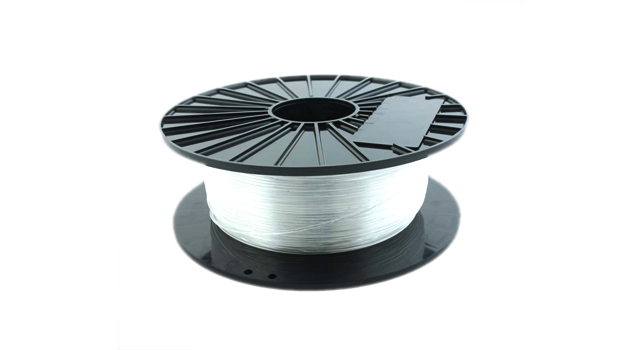PMMA or polymethyl methacrylate, is a strong, lightweight and transparent thermoplastic. It is commonly known as acrylic. PMMA filament has excellent impact strength that is significantly higher than glass. In addition, it has half the destiny of glass with comparable transparency and UV absorption properties.
There are several important benefits to using PMMA as a 3d printing material. To begin with, it has a high impact resistance which makes it tough and durable. It’s also extremely rigid with very little flexibility. So, if you’re going to need to print an object that will stand up to a certain amount of stress without bending or deforming, then PMMA 3D printer filaments are a strong contender.
Features:
- This is an ideal material when you need a hard object, with little flex, with excellent finish quality and clarity.
- PMMA responds very well to post print finishing, such as sanding, drilling or engraving.
- PMMA lends itself perfectly to the process of lost wax casting due to its ability to burn away cleanly without residue.
- Pure resin quality.
- Clear, thermoplastic acrylic;
- Strong, rigid, lightweight, impact resistant;
- Available in several colors, including neutral, red, blue and green;
- Acetone soluble;
- Generally, not food safe;
- PMMA filament temperature prints from 245C to 255C;
- Recommended printing bed temperature from 100C to 120C.
| Typical Properties | Value |
|---|---|
| Density [50% RH] | 1.19g/cm³ |
| Glass Transition Temperature | ~105°C |
| Melt Flow Rate(2) | 2.8g/10 min |
| Refractive Index B | 1.49 |
| Light Transmittance | 92% |
| Haze | 0.5% |
| Water Absorption [50% RH] | 0.3% |
| Tensile Strength | 10.2kpsi, 70MPa |
| Compressive Strength | 17kpsi, 117MPa |
| Tensile Elongation at Break | 6% |
| Flexural Strength | 14.9kpsi, 103MPa |
| Flexural Modulus | 479kpsi, 3.3GPa |
| Izod Impact Resistance (notched) | 1.8kJ/m² |
| Charpy Impact Resistance (notched) | 2kJ/m² |
| Charpy Impact Resistance (unnotched) | 11kJ/m² |
| Vicat Softening Temperature [50N] | 108°C |
| Heat Distortion Temperature (Tested at 66psi, 0.45MPa) |
103°C |
| Heat Distortion Temperature (Tested at 264psi, 1.82MPa) |
100°C |
| Moulding Shrinkage [50% RH] | 0.2~0.6% |
Click here to know more about 3D Printers, 3D Printing technologies, materials and services.

